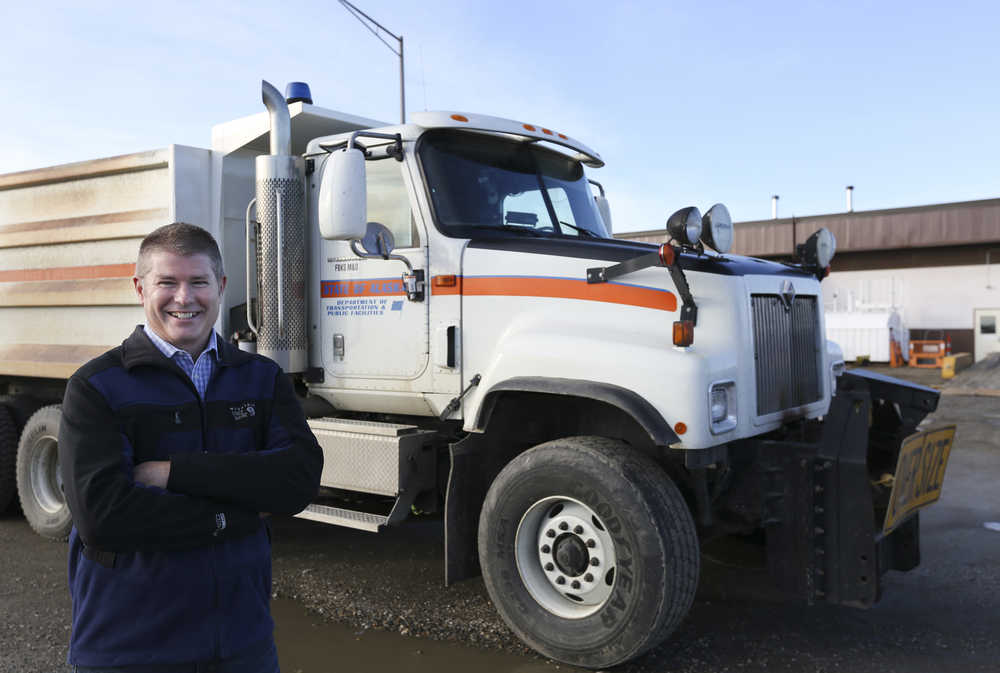FAIRBANKS — Dan Schacher had a pretty straightforward job when he began work as an Alaska Department of Transportation heavy equipment operator.
For about half the year, it would get cold and stay cold in Fairbanks. Crews would plow snow, spread gravel and keep the road safe.
That’s changed in the past 19 years, and Schacher knows it as well as anyone. He’s now DOT’s Fairbanks Maintenance Superintendent, with an updated winter recipe that includes freezing rain, deep snow, frigid cold and unexpected breakup conditions. In each year since 2010, winter rains have coated the roads with ice, creating an ongoing headache for drivers and maintenance crews.
For Schacher, who oversees a crew of 62 road maintenance employees and 160 pieces of equipment, it’s required a new approach to road maintenance at a time when state resources are tightening.
“I’m going to be really honest, it’s new territory for us because of the way we’ve had to change our processes,” he said.
The computer in Schacher’s office displays an interactive map that shows road temperatures and weather forecasts, offering an analysis of how and when roads should be treated. Alongside the plows in back, tanks of salty road brine are available for melting icy intersections.
Such tools were absent in the Interior a few decades ago, but Schacher’s willingness to embrace them has given him a reputation for innovation and creativity among his peers. He’s the incoming chairman for the American Public Works Association’s Subcommittee on Winter Maintenance, a national group that seeks new approaches for working in cold-weather conditions.
Mike Coffey, the former DOT statewide maintenance director, said it’s a natural fit. He said the state often steers pilot programs for road projects to the Fairbanks area because of Schacher’s open-minded approach.
“He’s willing to think outside the box and he’s not a guy who’s going to say, ‘We’ll do it this way because we’ve always done it that way,’” Coffey said.
The fit wasn’t always an obvious one for the 49-year-old Oregon native.
He initially planned a career in forestry, but moved to Alaska to work construction after a downturn in the timber industry. He switched to a DOT equipment operator job a few years later because it brought a steady paycheck and provided a schedule that allowed him to spend time with his daughter.
But Schacher’s skills were noticed by his supervisors. His ability to organize and work with people led to a series of promotions to his current role as maintenance superintendent.
“These guys have given me opportunities that, frankly, I wouldn’t give myself,” Schacher said.
Coffey said he expects more moves will be ahead for Schacher, who he calls a “superstar” in DOT management.
“He really has just latched on and loves working with people,” Coffey said. “I just love seeing how he’s jumped into that.”
Schacher said he’s focused now on fine-tuning DOT’s maintenance approach this winter as budgets shrink. He’s already taking calls from residents wondering why their roads haven’t been plowed or why liquid road brine is being sprayed on icy asphalt, and admits his approach will continue to evolve.
“If it looks like I’m doing something crazy out there, I probably am,” he said. “But it’s not without a lot of thought and resources put into it.”

